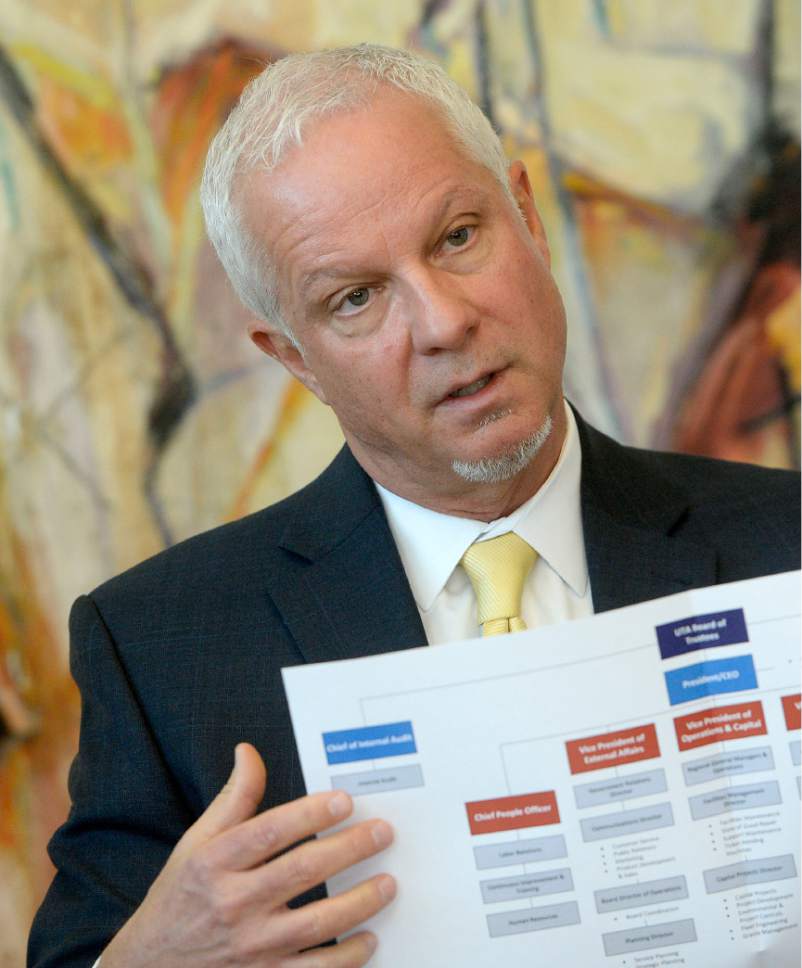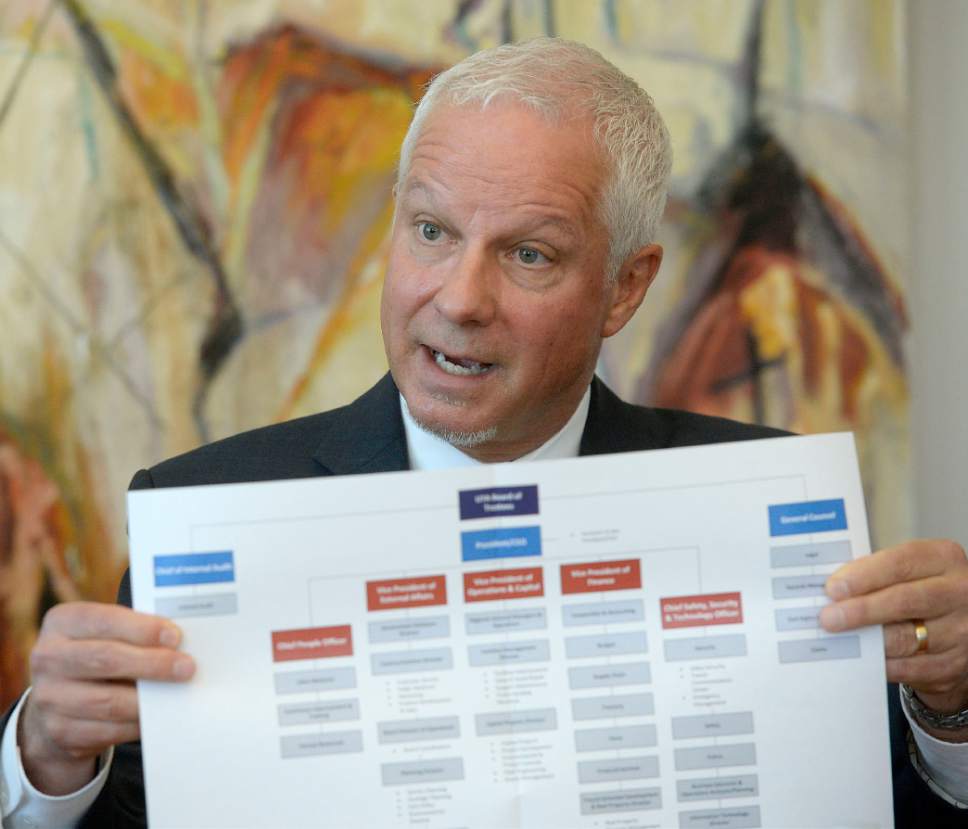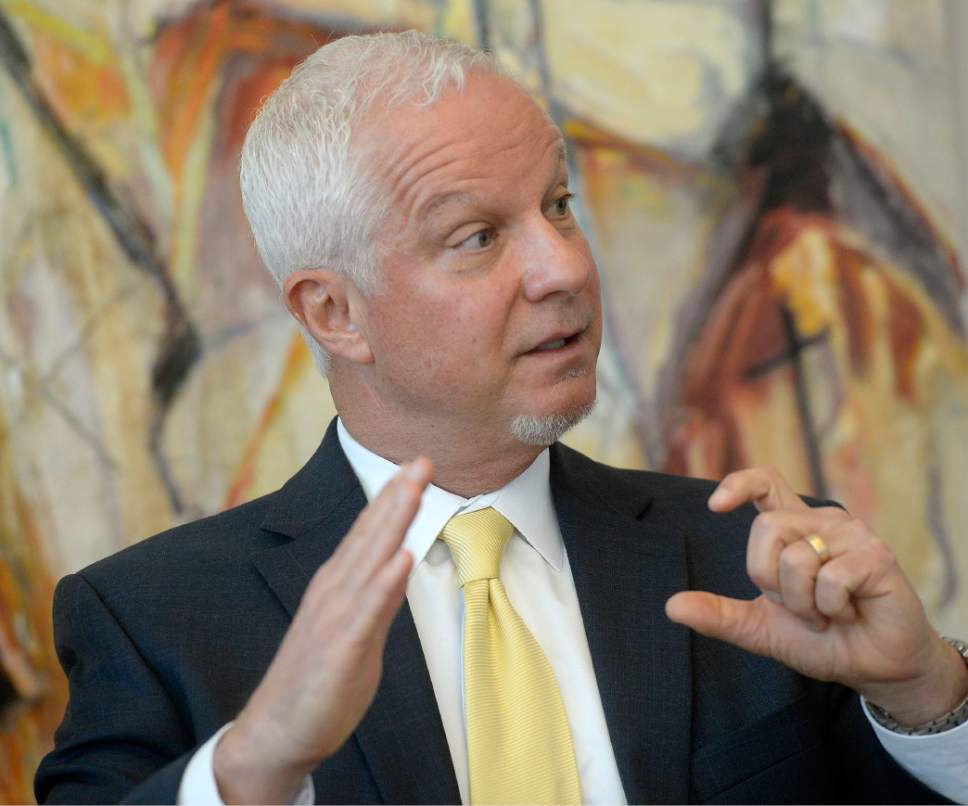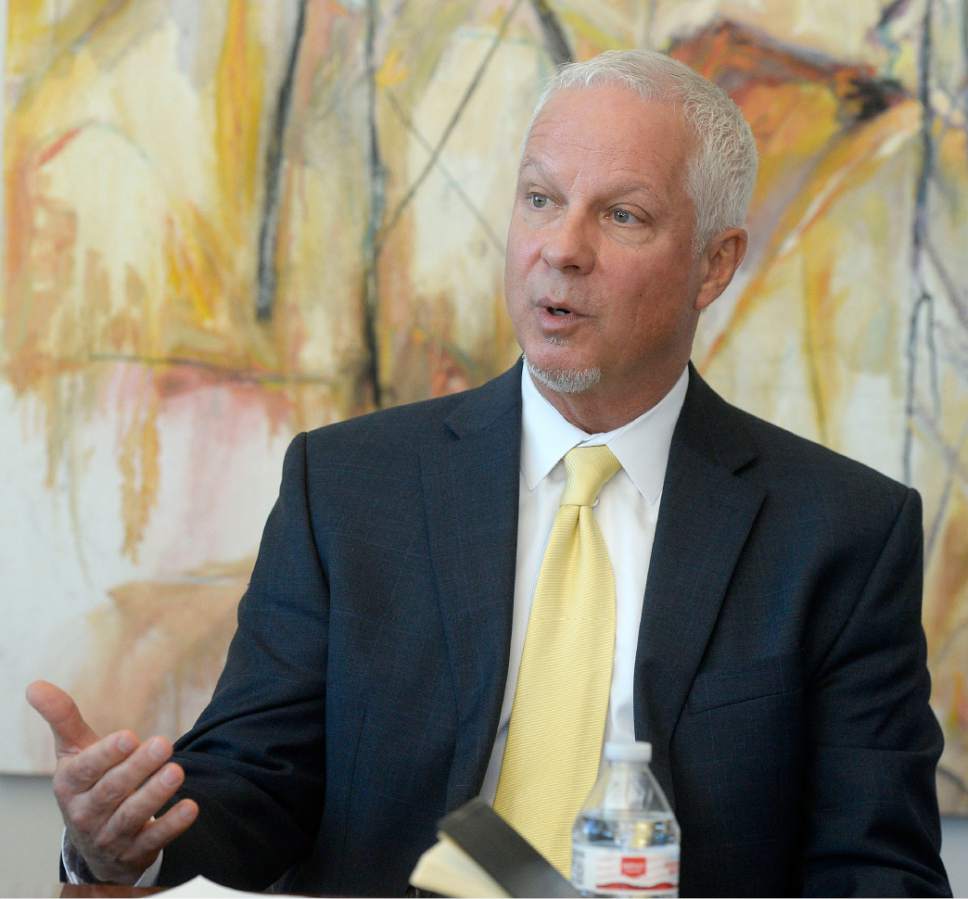This is an archived article that was published on sltrib.com in 2016, and information in the article may be outdated. It is provided only for personal research purposes and may not be reprinted.
The Utah Transit Authority announced Wednesday that it is streamlining its top leadership team as part of an effort to build public trust and improve customer service.
Newly appointed UTA President and CEO Jerry Benson said he is reducing the number of top leaders who will report directly to him from eight to five as part of a general restructuring of the agency.
He told the UTA board the changes are part of a "new era" shift in focus. In recent years the agency prioritized completing expansion of numerous rail projects. With that finished, he said, the agency's main goal now is to improve service and maintenance of its equipment.
"We're in an era when our focus needs to be on service and stewardship," he said. "Our focus needs to be on improving our relationships and our credibility with the community, increasing openness and transparency and working hard to align the whole organization to focus on our customers."
Since taking over UTA two months ago, Benson said he has seen "some gaps in our performance," including "not supporting the people who serve our customers and enabling our front-line employees to do their jobs most effectively." Changes are afoot to remedy that, he said.
Three vice presidents and two section chiefs will now report to Benson.
That includes Vice President of Operations and Capital Todd Provost; Vice President of External Relations Nichol Bourdeaux; Vice President of Finance Robert Biles; chief of safety, security and information solutions Dave Goeres; and a yet-to-be-named "chief people officer" over human resources.
UTA said those chiefs for now will be paid their current salaries. But the agency said all positions with new responsibilities will have their salaries re-evaluated and compared to similar positions at other transit, government and nonprofits.
The restructuring is planned to be budget-neutral and have the same number of employees, although many workers may be moved into new departments, answer to new bosses or have new job descriptions.
Benson noted that the UTA board over the past year has made reforms to address previous criticisms about high executive salaries, extensive travel and sweetheart deals to developers through its transit-oriented-development projects.
He said the new restructuring is not so much about those reforms. "What this is about is looking forward to how we can improve our customer experience, how we can proactively communicate, how we can improve transparency."
In a meeting with The Salt Lake Tribune editorial board Wednesday, Benson said UTA realizes it must improve public trust — especially if it hopes to win voter approval to increase taxes to levels of similar areas such as Denver and San Diego to expand service.
He said past problems — which became a focus that helped to defeat Proposition 1 last year in Salt Lake and Utah counties to boost transit taxes — hurt the agency's reputation and trust, but he is working to reverse it.
He also said UTA cannot allow construction of any future large transit project to hurt other service, and will work to prevent that.









